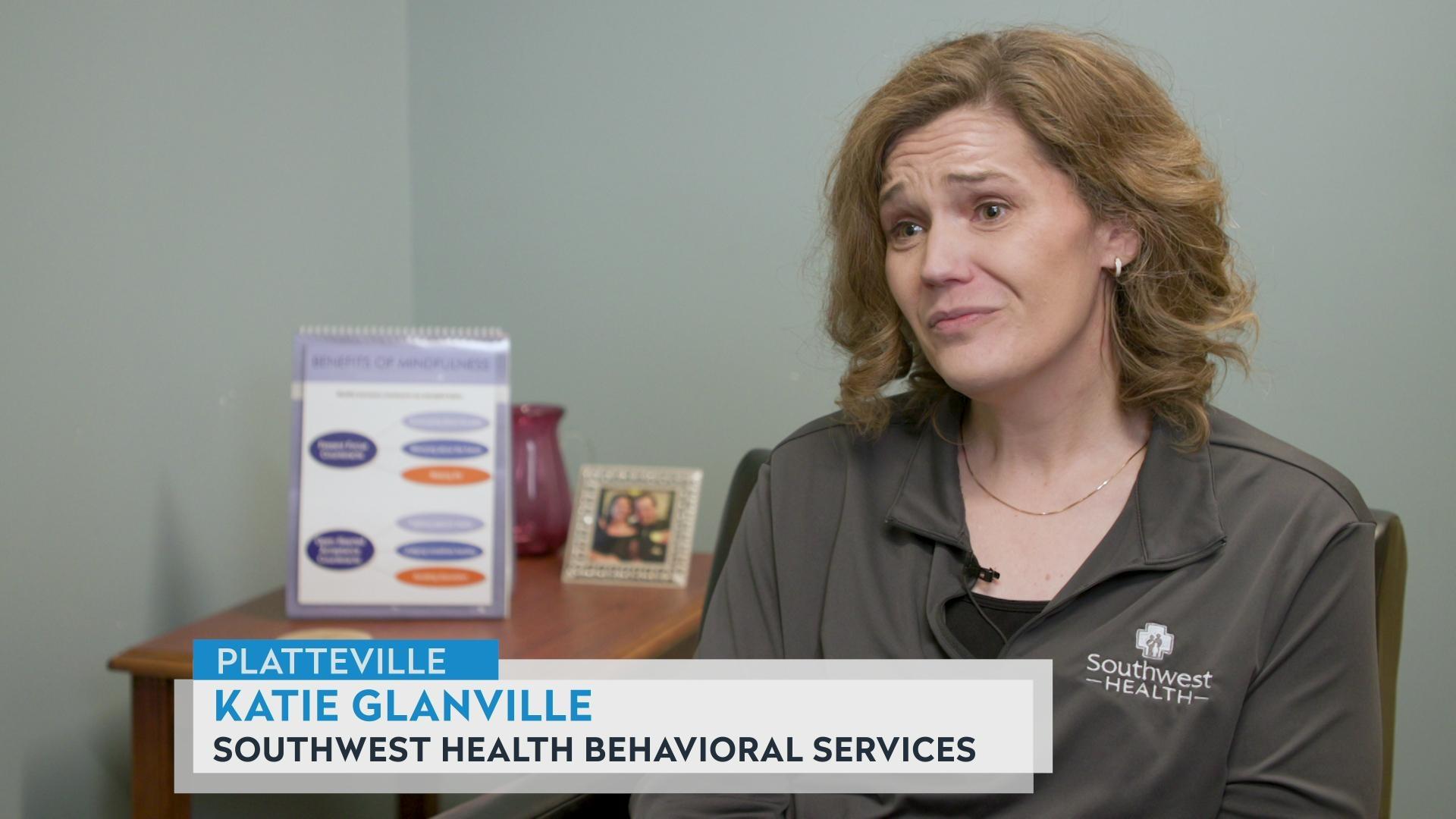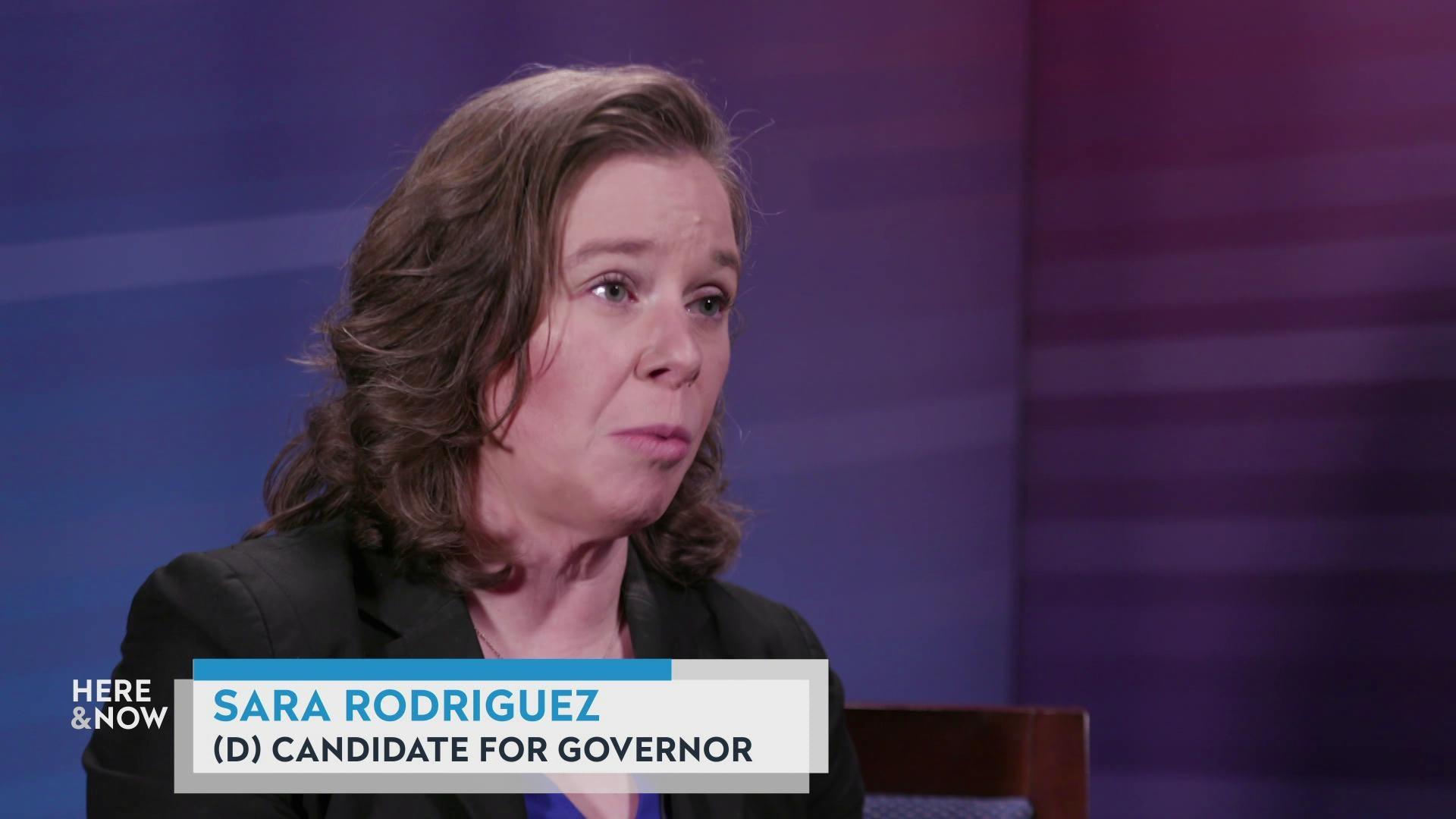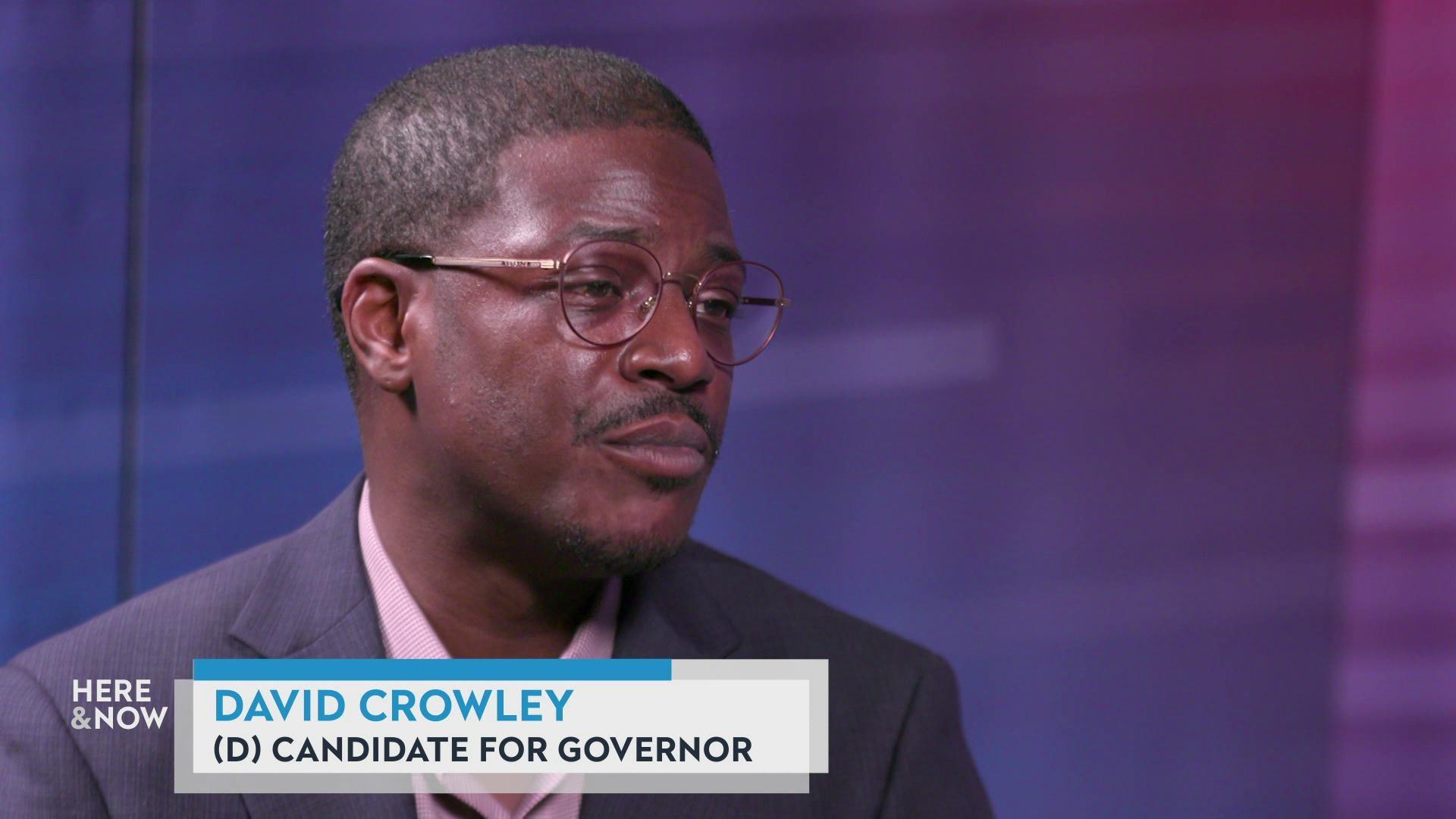Julie Willems Van Dijk:
The worst thing in the world we can do right now is say, “No mandate, no mask,” because we are, as has been said here, seeing spread of variants and we need to use the mechanisms we have in place to prevent spread.
Frederica Freyberg:
The real world implications of rising COVID cases and no more state mask mandate. While Wisconsin remains a leader in the number of vaccines in arms, there’s a worrying trend by way of an uptick in COVID cases and news that the more infectious U.K. variant is likely to be the dominant strain in Wisconsin within the next two weeks. This means the race to vaccinate to beat the variants is urgently underway. In a moment we will hear about cutting-edge work being done on the variants at UW-Madison, but first, we get an update from the Secretary-designee of the State Department of Health Services Karen Timberlake. Thanks so much for being here.
Karen Timberlake:
You’re welcome. Thanks for having me.
Frederica Freyberg:
There does appear to be new urgency from state public health officials, new cases have doubled in the last month and as mentioned the U.K. variant is chasing us down. How urgent would you describe the situation we’re in right now?
Karen Timberlake:
We are very concerned, both about the growth in positive cases. We had seen a nice decline in our positive cases for a number of weeks and as you point out, it’s now really rising quickly. In addition, the thing that’s important for people to know about these new variants is this is still COVID-19. It’s still this virus that we’re familiar with. The problem is, it’s a tricky virus and it’s continuing to mutate and become more contagious. So the reason we’re paying attention to these new variants is that they spread more quickly. So that is why it’s that much more important for people to keep wearing masks, keep staying physically distant, and keep your social circles small, and get vaccinated just as fast as you have an opportunity to do that.
Frederica Freyberg:
What is the situation in terms of numbers with the spread of these variants in Wisconsin?
Karen Timberlake:
So we are sequencing numbers of cases every week. We obviously can’t take a look at every single positive test that we get, but what we’re seeing is about half of the samples that we are testing are these new variants. So that’s what tells us the variants are spreading very widely and very quickly, but again, the most important thing for people to know is it’s still coronavirus. We still know masks work. We still know that it’s important to get tested when you have symptoms. And we know that the vaccine is the best way to beat those variants.
Frederica Freyberg:
So has it been the case here that the U.K. variant is taking hold in child care settings as we saw in Dane County and in youth sports activities?
Karen Timberlake:
It’s a little early to say that. We certainly are following those kinds of reports of outbreaks. And again, that’s also why it’s really important that people continue to get tested, so that we can start to better isolate and understand the spread of the variant. But I think really the key takeaway for people is that COVID continues to be everywhere in our state. It does continue to spread. And we have to keep up with our good, preventive measures.
Frederica Freyberg:
Describe for us if you would the latest vaccine availability and numbers of people vaccinated in Wisconsin.
Karen Timberlake:
This is really a good news story. Just since the middle of December, we have given more than 3.4 million doses of COVID vaccine across our state. So we’re now at a place where about 36% of everyone in the state of Wisconsin has had at least one dose of their COVID vaccine. About one in five people, a little better than one in five people, are fully vaccinated. 77% of our seniors have gotten at least one dose. More than 65% of our seniors are fully vaccinated. And we are continuing to open more availability to vaccines so this week we announced a partnership with our federal partners at Federal Emergency Management Association or FEMA, which will be adding some additional staff capacity here in Dane County. Around the state, we have community clinics in Rock County, in La Crosse, Eau Claire, Marathon. We’re opening up up north. So we’re really working hard in addition to hospitals, clinics, pharmacies, et cetera, to make vaccine very available for folks.
Frederica Freyberg:
So sounds like Wisconsin obviously has the infrastructure to get those, “shots in arms.” What about the supply coming in from the feds? Has that remained steady and increased?
Karen Timberlake:
Great question. So the answer is it has certainly increased in the last two months or so. When I started back at the department at the end of January, we were looking at 70,000 first doses a week. This week we’re up in the 180 to 220,000 first doses. The challenge we’re about to have, just so folks are aware, is we’ve been told all along that the supply of Johnson & Johnson was going to be a little bit variable. And we are going to see a decrease in Johnson & Johnson next week and perhaps the rest of April. But Pfizer and Moderna vaccine are staying consistent and so people need to be patient and persistent. So calling our toll-free number, checking out the vaccine finder resources on our website, those are all good ways to find a vaccine.
Frederica Freyberg:
With less than a minute left, the CDC just ordered Wisconsin I understand more than $50 million to vax underserved populations. How will that money be deployed and when?
Karen Timberlake:
So what we’re working to make sure we can do is get resources out into communities all across the state to make sure that everyone who is eligible for a vaccine has the opportunity to get one. We’ll work in partnership with our local partners to make sure that we can lift up availability and make sure everyone is aware, both of the fact that they’re eligible to get a vaccine and where they can find those vaccine resources.
Frederica Freyberg:
All right. Great. Thank you very much, and thanks for your work.
Karen Timberlake:
Thank you.
Search Episodes

Donate to sign up. Activate and sign in to Passport. It's that easy to help PBS Wisconsin serve your community through media that educates, inspires, and entertains.
Make your membership gift today
Only for new users: Activate Passport using your code or email address
Already a member?
Look up my account
Need some help? Go to FAQ or visit PBS Passport Help
Need help accessing PBS Wisconsin anywhere?

Online Access | Platform & Device Access | Cable or Satellite Access | Over-The-Air Access
Visit Access Guide
Need help accessing PBS Wisconsin anywhere?

Visit Our
Live TV Access Guide
Online AccessPlatform & Device Access
Cable or Satellite Access
Over-The-Air Access
Visit Access Guide
 Passport
Passport


















Follow Us